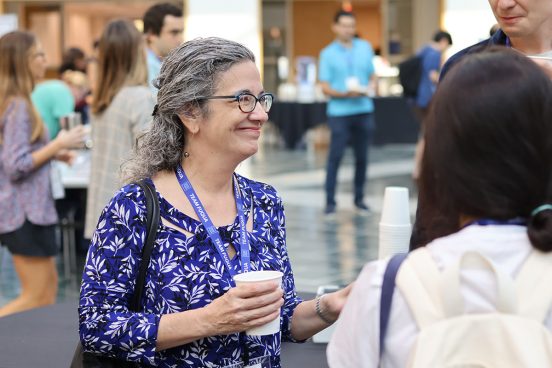Duke MSQM Student Blog

Data to Decisions: How Duke Empowered Me To Lead Boldly in Today’s World of Business

“Big Data”; “Advanced Analytics”; “Machine Learning”; “Artificial Intelligence”: these phrases are no longer latent heuristics to subjectively depict a hypothetical future. Rather, the practice of analytics and all its components have become realities that amplify efficiency and effectiveness in the world of business.
I have had a strong bias to utilize data in decision-making since I began my career. In the first few roles of my career, it was rare for me to not have an Excel window open on my computer — leveraging data and its power to inform decisions that would yield an impact on my career. However, as the “buzz” around machine learning began to grow in prominence, I began to realize that big data, analytics, machine learning algorithms and artificial intelligence models had the collective power to not only equip business leaders to solve complex problems, but to reshape how we solve those problems. In tandem with my full-time MBA experience, this prescient assessment of business’ data-powered evolution is what animated my decision to pursue the Master of Quantitative Management (MSQM) at Fuqua.
Below I answer a few questions about my experience.
1. How are you leveraging what you learned from the Accelerated MSQM: Business Analytics program in your career?
The MSQM program proudly builds the link between data science and decision-making, and it equips students with the skills and perspectives to boldly lead in a data-informed fashion. This is precisely what I gained out of my MSQM experience.
Though I do not write programming code or build machine learning algorithms in my day-to-day career, the perspective I gained through MSQM informs the frameworks that I use to break down and solve complex problems. Before ever thinking about a solution, I first break down business problems into their core elements. The MSQM program engendered in me the discipline and understanding to objectively use empirical evidence to better comprehend the business challenge in front of me. After developing a data-driven, well-rounded understanding of the problem, I can apply my creativity to ideate solutions that lead to maximal impact to address the challenge at hand.
2. What does teamwork look like in MSQM? How did your cohort stay connected throughout the program?
It is critical to seamlessly operate in a hybrid work environment in today’s business world to solve the problems in front of us. Despite its importance, teamwork in a hybrid environment can be difficult to execute. Balancing a hybrid format in an extremely rigorous program at Duke, while performing well in the daily tasks between work and family, proved to be ruthlessly exhausting. However, proper organization and planning, along with trust in one’s teammates, are the blueprint of success to both survive and thrive in the MSQM program.
Practically speaking, our team had a consistent virtual meeting time each week — Wednesday evenings at 6:00 p.m. to be precise. In these meetings, we would discuss the challenges in front of us in the week’s assignments. Before ending each meeting, we would assign ownership for all remaining work while respecting the demands each teammate had in their personal and professional lives for the given week. We supported each other, and more importantly, we trusted each other. This was our recipe for success that helped us deliver excellence in the quality of our work throughout all classes in the MSQM program.
3. What aspects of the program made the experience worthwhile?
The MSQM program was an incredibly enriching experience. Through it, I learned extremely complex concepts that reside at the crossroads of technical data science and business leadership. I am grateful for these learnings and intend to use the perspective shaped in the program throughout my career.
However, it was truly the people that made the experience most worthwhile. Fuqua’s faculty employs some of the world’s most brilliant academic thinkers, intellectuals, and teachers. Their desire is nothing more than for their students to greatly learn and become stronger leaders through the rigors of the program. It was truly a joy to build relationships with my professors, and I intend to stay in touch with many of them throughout life.
Moreover, I genuinely cherish the friendships built with my fellow classmates. The late nights, early mornings, and weekend classes were not easy; however, I knew that I had a cohort of classmates embracing the grind of the program by my side. Enduring the MSQM experience was oftentimes exhausting but completing it with my classmates made it the experience of a lifetime!



